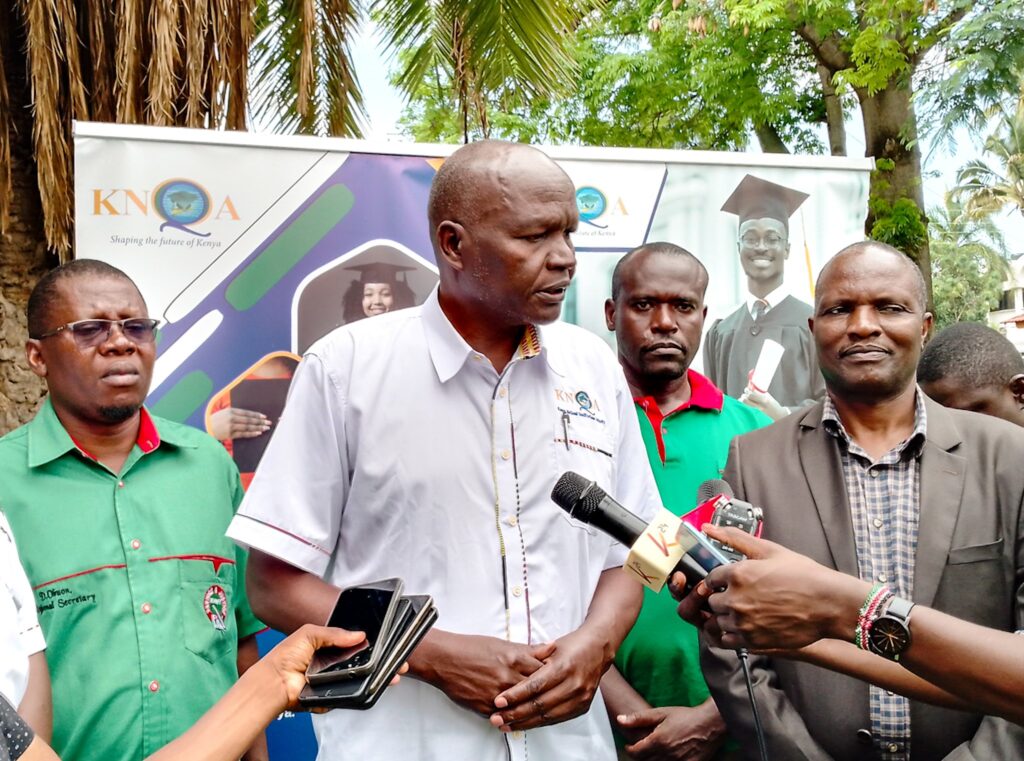The Kenya National Qualifications Authority (KNQA) has flagged over 10,000 discrepancies in academic credentials out of 47,000 names submitted for verification, Chairperson Stanley Kiptis has revealed. The flagged cases have been returned to the respective institutions for clarification in line with data regulation laws.

Speaking at Tom Mboya Labour College in Kisumu during a public participation forum, Kiptis emphasized the agency’s ongoing efforts to curb fraudulent certifications through a centralized qualifications database.
“Following a 2022 directive, we are working with other agencies to authenticate qualifications. We are also developing a national database, supported by the Ministry of Education and other partners, where all awarding institutions will upload certifications. This will serve as a ‘one-stop shop’ to verify credentials from basic education to university, eliminating fake certificates,” Kiptis stated.
KNQA has also launched a nationwide public participation exercise to refine the Kenya National Qualifications Framework (KNQF) as it moves to draft the Kenya National Qualification General Regulation 2025.
Kiptis lauded stakeholders in Nyanza for their strong turnout, emphasizing the importance of public input in shaping a robust qualifications system. He noted that the current phase of public engagement will inform the framework’s second and third phases.
“As we mark 10 years since KNQA’s establishment in 2014, this review is critical to aligning our qualifications system with the evolving education landscape in Kenya, Africa, and globally,” he said.
Key challenges highlighted in the review process include difficulties in the transition between qualification levels. Kiptis noted issues in the progression from diploma (Level 6) to higher diploma (Level 7), stressing the need for reforms to enhance recognition of qualifications and ensure seamless academic and professional growth.







